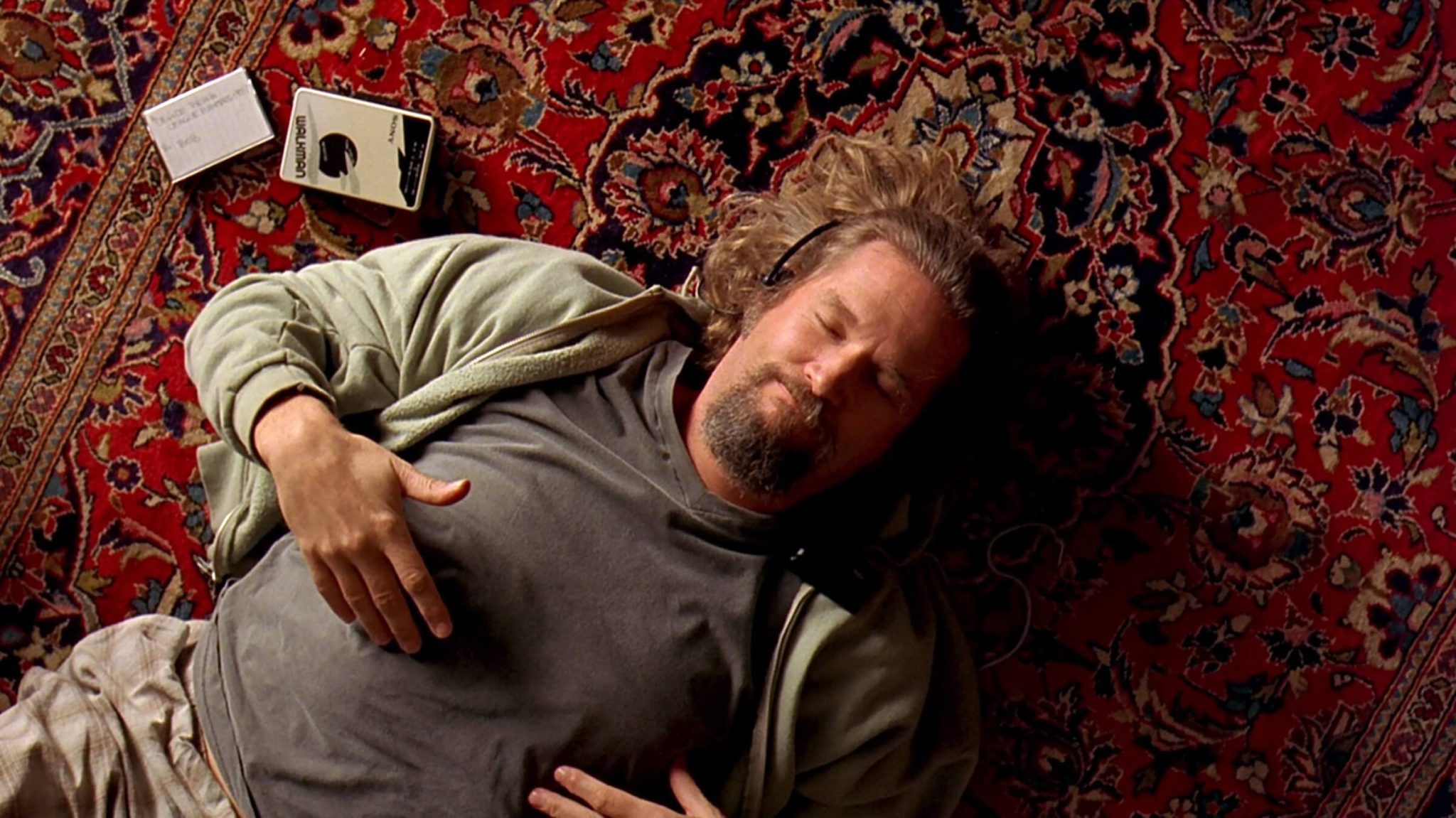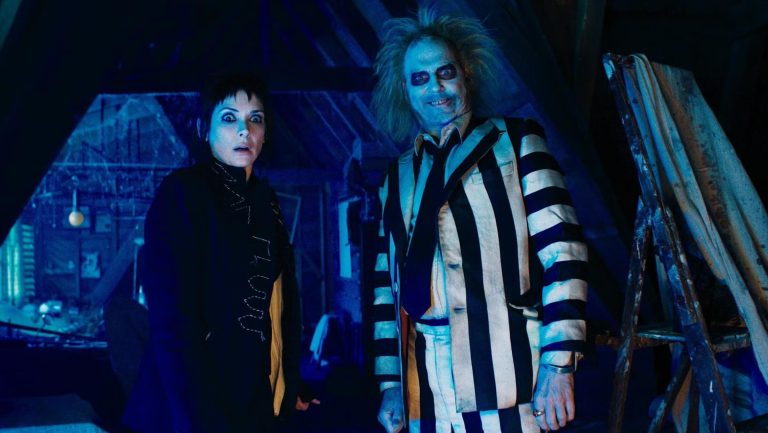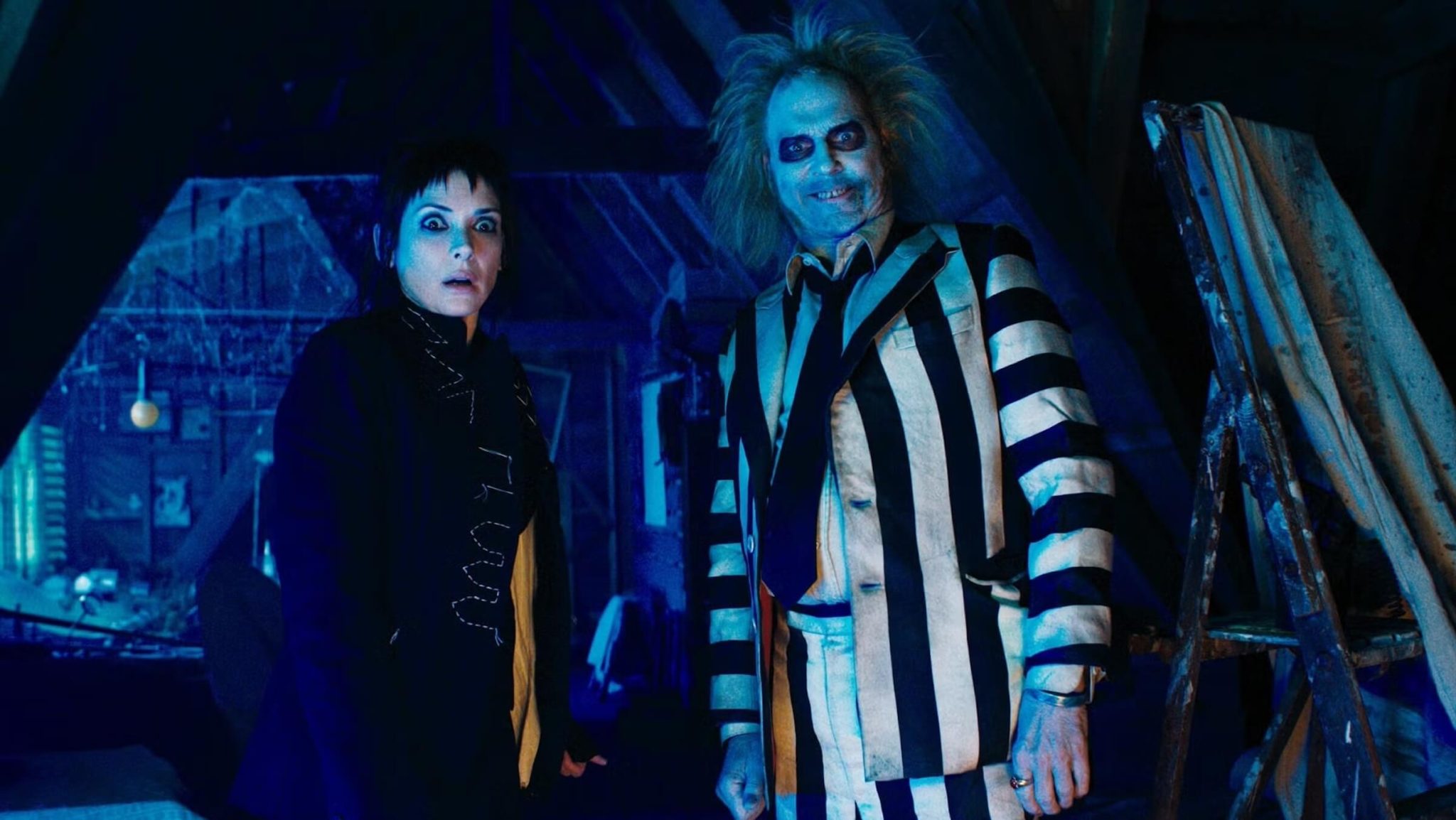3 Ways to Use (and Not Use) Music for Your Screenwriting

Cinema and television may be visual mediums, but they are highly enhanced by—and reliant on—music.
Imagine Star Wars without the iconic musical score. Or how different types of music (or none at all) would impact iconic scenes in The Lord of the Rings. Imagine the iconic scenes of Footloose without the soundtrack. Music really makes these scenes iconic.
But how do screenwriters create an impact on this union of visuals and music in the screenplays they write? And how can they use music in their screenwriting process?
Here we cover these questions by offering three ways you should and should not use music in your writing.
3 Ways You Should NOT Use Music in Your Screenplays
Let’s start with what not to do.
1. Don’t Use Songs as Source Material
It’s copyright infringement—plain and simple. The rights to a song must typically be purchased to adapt it into a movie.
This involves acquiring either copyrights or licenses depending on how the song is used, which usually includes two primary components:
- Composition Rights (Publishing Rights): These cover the song’s underlying composition (lyrics and music). Whoever owns the publishing rights—whether the songwriter or a music publisher—must permit the song to be adapted into a movie. This is essential if the song forms the basis of the movie's narrative or is referenced in significant ways.
- Master Recording Rights: If the filmmakers wish to use the original recording of the song (the exact version made by the artist), they need to obtain the master rights from the entity that owns the actual recording, usually the record label.
In the case of movies based on songs (Alice’s Restaurant, Purple Rain, or Ode to Billie Joe), filmmakers would have had to negotiate with the songwriters and/or their publishers for the right to adapt the narrative of the song into a feature-length film.
In some cases, particularly with older songs, the music may have entered the public domain (after a certain number of years), meaning no one owns exclusive rights to the song, so filmmakers wouldn’t need to purchase adaptation rights.
However, most popular songs from the 20th century are still under copyright protection.
It may sound silly (“Who would do that?”) but trust me, I’ve seen it all during my time as a studio script reader and mentor to screenwriters.
Read More: The Screenwriting Dos and Don'ts of Intellectual Property
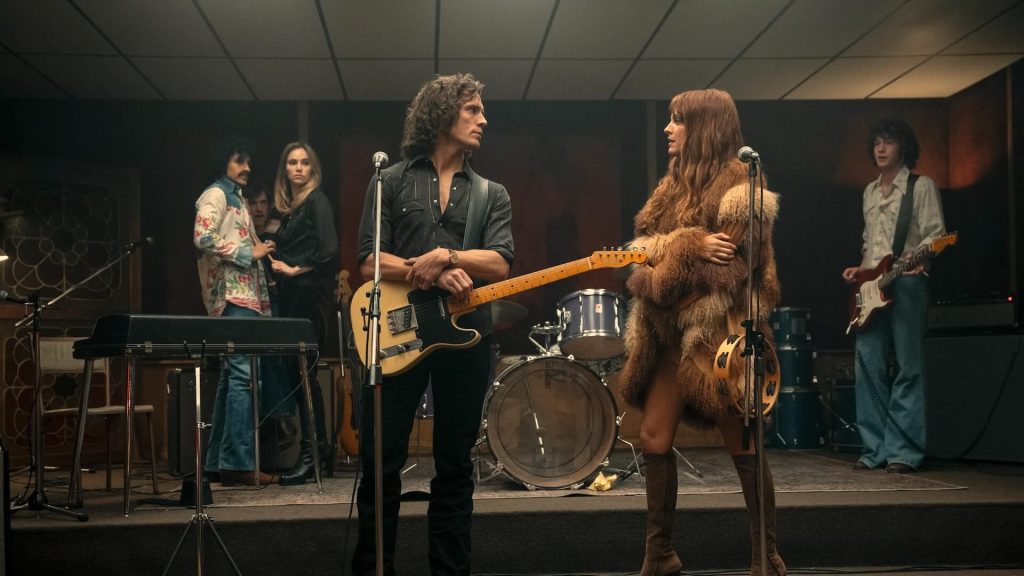
'Daisy Jones & the Six' (2023)
2. Try Not to Reference Specific Music and Songs in Your Scripts
You may know the lyrics, songs, singers, and bands you’re referring to in your script, but there’s a good chance that the script reader (pro script readers, development execs, producers, assistants, interns, managers, agents, and even talent like actors and directors) may not be familiar with them.
If I were to write a scene description that says:
Kurt walks into his apartment with sad and defeated eyes. He goes straight to his cassette collection and puts in the single for Pearl Jam’s "Jeremy." But instead of playing the classic hit, he plays the B side of the tape and collapses onto his couch.
I may know what the heck is going on because I’m a die-hard Pearl Jam fan. You may know as well. We both may know that the amazing song "Yellow Ledbetter" was never released on an album officially but instead debuted as the B side of the "Jeremy" single.
But what if the reader doesn’t know?
You’ve now just alienated them from the scene. They can’t hear the music because they don’t know the reference. And, no, they’re not going to take the time to Google what the heck you’re talking about.
While it’s no official rule that you can’t mention iconic music in your scripts, you always want to avoid the chance of the reader not understanding your reference.
You’ll notice that most of the successful scripts that embrace music knowledge are those written by auteurs (directors who also write the script)—and auteurs have much more freedom than screenwriters because they are both writing and directing the film.
3. You Likely Can’t Get the Rights to the Songs
Here’s the reality. You may have this vision of writing an amazing script that uses iconic music—or just specific music from certain artists—as a tool to tell the story, but what you’re really doing is writing yourself into a hole.
Let’s say you do get the script into the hands of studio execs. Most studios own or are signed with particular music labels/libraries. They likely can’t get the rights to the songs you’re referencing or using within your narrative.
Sadly, it’s not our job as screenwriters to dictate the music that is used in the adaptation of our scripts.
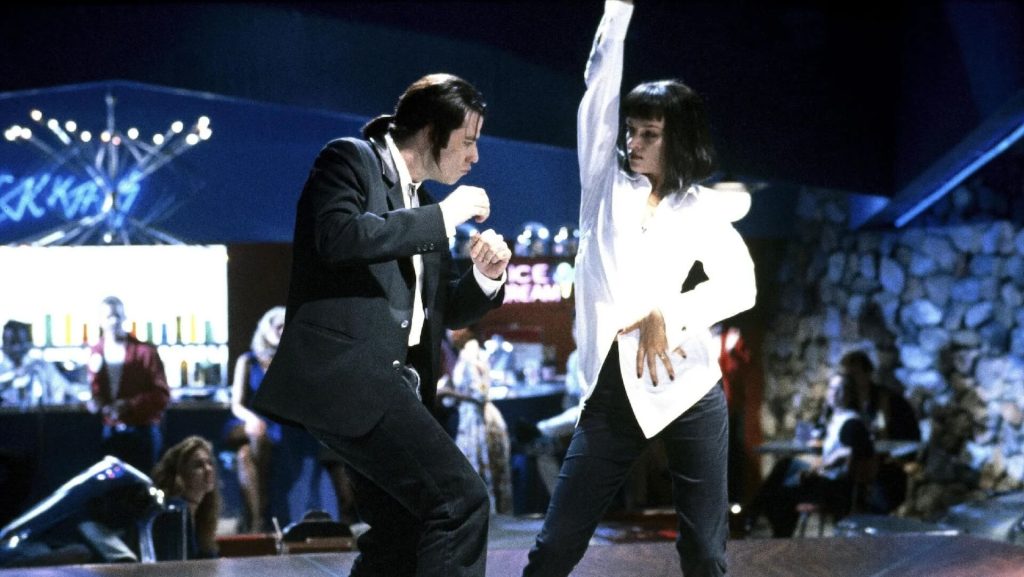
'Pulp Fiction' (1994)
3 Ways You Can Use Music in Your Screenwriting
Don’t worry. Just because you can’t dictate which music is used in the eventual adaptation of your script doesn’t mean you can’t embrace music in your screenwriting process.
Music can be a highly effective way to get you in the proper mindset and zone to write a scene. Here are three ways you can do that.
1. Find Your Temp Soundtrack Before You Start Writing
Before I start any script I’m contracted to write, I find the temp track.
The term temp track is taken from the post-production process of filmmaking where editors and music supervisors assign a temporary soundtrack for the film late in the editing process when the filmmakers are preparing to show an early cut of the film to the powers that be—or even test audiences.
Music is used from stock tracks either owned by the studio or ones that they have been permitted to use (most of the time, at least).
You can do the same for your writing process by finding music that you can attach to your visualization of each and every scene. The temp tracks you listen to during the writing of your script can help enhance the visualization necessary for you to convey what’s in your head to the words you write within the scene description.
2. Try to Use Film Scores to Create Tone and Atmosphere During Your Writing
Film scores are the thematic music that accompanies the visuals of a film. Film scores don’t utilize spoken or sung lyrics—it’s all instrumental (with some exceptions of course).
When you’re looking for your temp track for your writing process, do your best to find atmospheric music, as opposed to using uber-iconic tracks like the works of John Williams.
Iconic themes like Star Wars…
Superman…
And even the Indiana Jones theme from Raiders of the Lost Ark…
…are far too attached to iconic visuals to help create a more original tone and atmosphere for your story and characters.
Instead, go with more atmospheric film scores.
You can even select particular film score tracks for specific scenes you’re writing. I do that often in my assignment work.
3. Listen to Particular Music to Get Into Your Characters, Locations, and Eras
While you shouldn’t always put specific songs in your screenplays (read above), you can utilize songs to get into the minds of your characters, the geography of your location settings, and the eras of your stories.
If you’re writing a World War II story about a group of American soldiers in training, you could listen to something like this:
If you’re writing about characters in the 1970s, you could listen to playlists that cover the greatest hits of the era:
This is for your use only. However, listening to music can be an invaluable tool for creating that movie in your head. Every single scene needs to be envisioned first within your mind’s eye (and ear). When you do that, you can convey your vision and cinematic intentions to the script reader that much easier.
Read More: 5 Trademarks of Quentin Tarantino Movies
Check out our Preparation Notes so you start your story off on the right track!
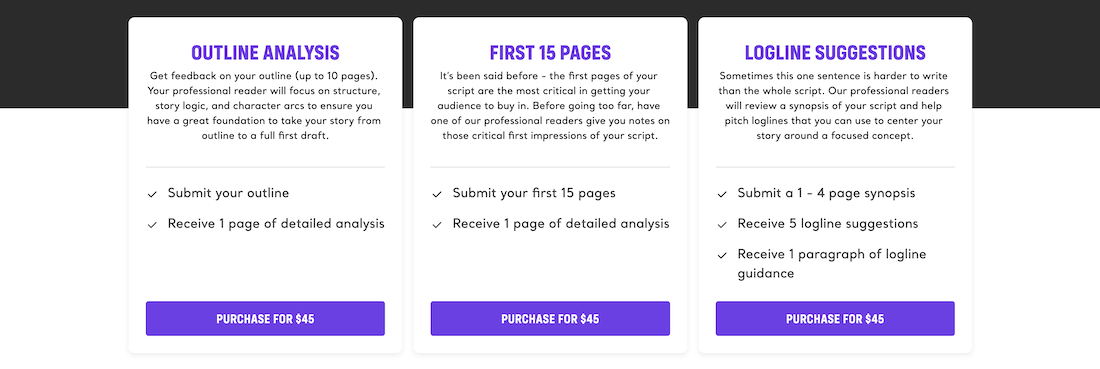
Ken Miyamoto has worked in the film industry for nearly two decades, most notably as a studio liaison for Sony Studios and then as a script reader and story analyst for Sony Pictures.
He has many studio meetings under his belt as a produced screenwriter, meeting with the likes of Sony, Dreamworks, Universal, Disney, Warner Brothers, as well as many production and management companies. He has had a previous development deal with Lionsgate, as well as multiple writing assignments, including the produced miniseries Blackout, starring Anne Heche, Sean Patrick Flanery, Billy Zane, James Brolin, Haylie Duff, Brian Bloom, Eric La Salle, and Bruce Boxleitner, the feature thriller Hunter’s Creed, and many Lifetime thrillers. Follow Ken on Twitter @KenMovies and Instagram @KenMovies76.
Tags
Get Our Screenwriting Newsletter!
Get weekly writing inspiration delivered to your inbox - including industry news, popular articles, and more!



